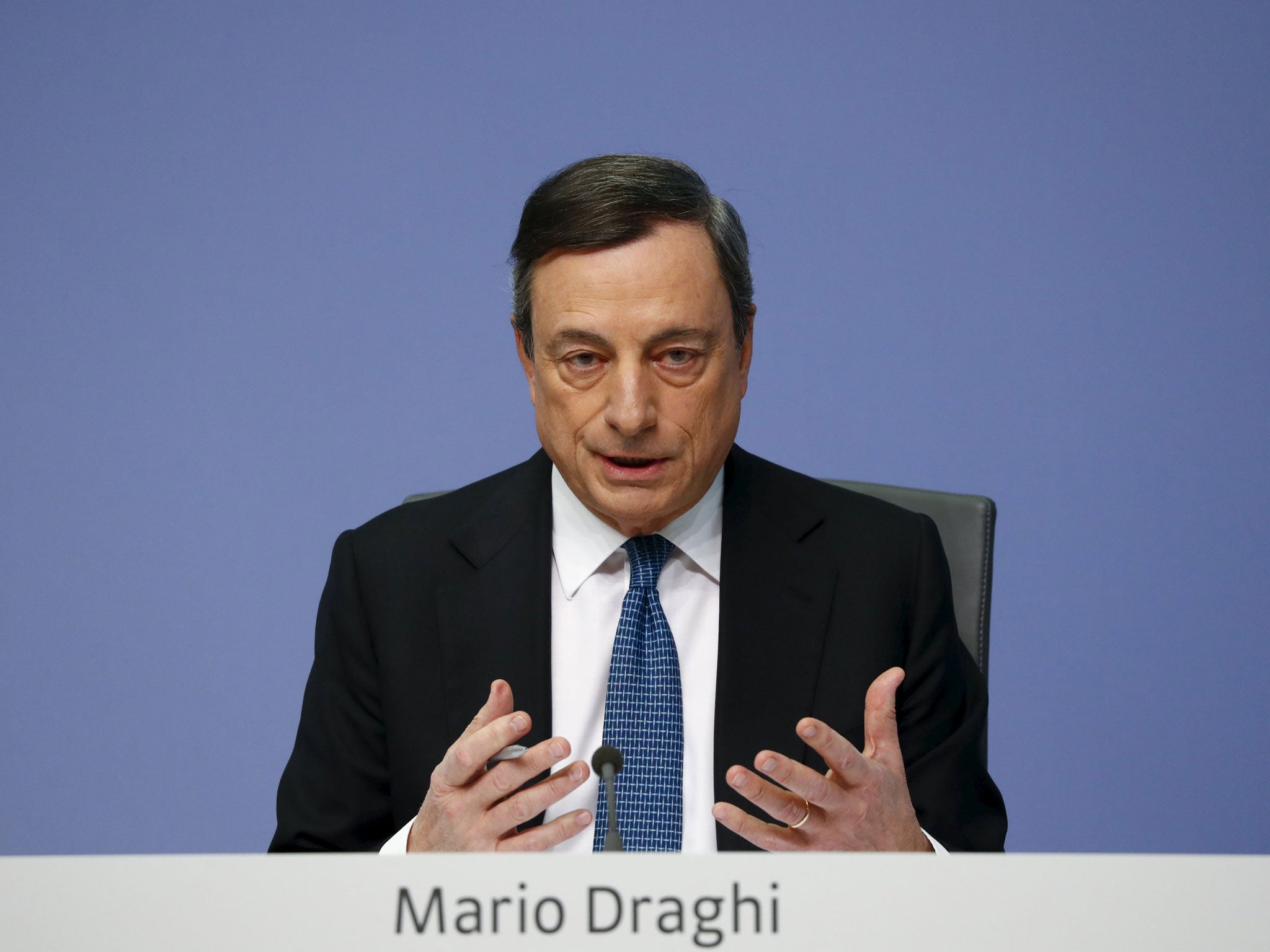Euro rises after Mario Draghi relaxed statement on Brexit impact
The ECB president said: "Our assessment is that euro area financial markets have weathered the spike in uncertainty and volatility with courage and resilience"

The president of the European Central Bank Mario Draghi struck a sanguine tone on the aftermath of the UK’s Brexit vote, but moved equity markets by urging a "public backstop" for the eurozone's struggling lenders.
The ECB kept its main interest rates on hold and in his press conference Mr Draghi stressed markets had responded in an orderly fashion to the UK’s shock plebiscite result on 23 June.
“Following the UK referendum on EU membership, our assessment is that euro area financial markets have weathered the spike in uncertainty and volatility with courage and resilience” he said.
“The announced readiness of central banks to provide liquidity if needed, and our accommodative monetary policy measures, as well as our robust regulatory and supervisory framework, have all helped to keep market stress contained. Financing conditions remain highly supportive”
Some analysts had speculated that ructions in financial markets post-Brexit could force an extension in the size or scope of the ECB’s €80bn a month monetary easing programme, which is designed to pull the single currency zone out of deflation.
After Mr Draghi’s bullish comments the value of the euro shot up about 0.34 per cent to $1.1056, from $1.102 previously, although it rapidly fell back.
The ECB and the European Commission have estimated that Brexit will hamper eurozone GDP by 0.2 to 0.5 per cent over three years.
But Mr Draghi said these forecasts should be taken with “with a grain of caution”.
“Large uncertainties prevail because first of all these figures will in the end depend on how long is the stretch of time for these negotiations to be completed and therefore to give a certain outlook which we don't have today” he said.
Yet Mr Draghi did voice concerns about the large drop in European bank share prices in the wake of the Brexit vote and said that the Commission should agree a “public backstop” for lenders.
“Bank equity prices are of some significance for policymakers because, when if they drop in the way they did, one would assume this is to stay, cost of capital would increase and therefore the net return on lending would decrease, and would suggest on the banking side a more conservative lending behaviour. That's why we do care about bank equity prices for the transmission of our monetary policy” he said.
“A public backstop is a measure that would be very useful... We want to avoid firesales.”
Those comments instantly lifted eurozone bank share prices with Italy’s troubled banks such as Unicredit and Banca Monte dei Paschi di Siena benefiting.
Draghi boost: EURO STOXX Banks Index
The Italian government of Matteo Renzi is under pressure to recapitalise a host of struggling domestic lenders, but European state aid rules forbid such public bailouts unless bondholders are bailed in. In Italy this would include a large number of less well-off and elderly retail investors.
Europe’s banking regulator is scheduled to reveal the results of its latest stress tests of institutions at the end of the month.
The ECB kept its main refinancing rate a 0 per cent and its deposit rate at minus 0.4 per cent, effectively charging private lenders for parking money at the central bank. The QE programme is currently due to expire in March 2017.
Carsten Brzeski of ING said further easing from the ECB was "possible" at its September meeting "though not a done deal yet".
"We expect the ECB to step up its QE programme in September (with monthly asset purchases rising to EUR 100bn from EUR 80bn). In addition, it is likely to extend the programme to the end of next year, compared to the soft deadline of March 2017 currently" said Nick Kounis of ABN Amro.
Subscribe to Independent Premium to bookmark this article
Want to bookmark your favourite articles and stories to read or reference later? Start your Independent Premium subscription today.

Join our commenting forum
Join thought-provoking conversations, follow other Independent readers and see their replies